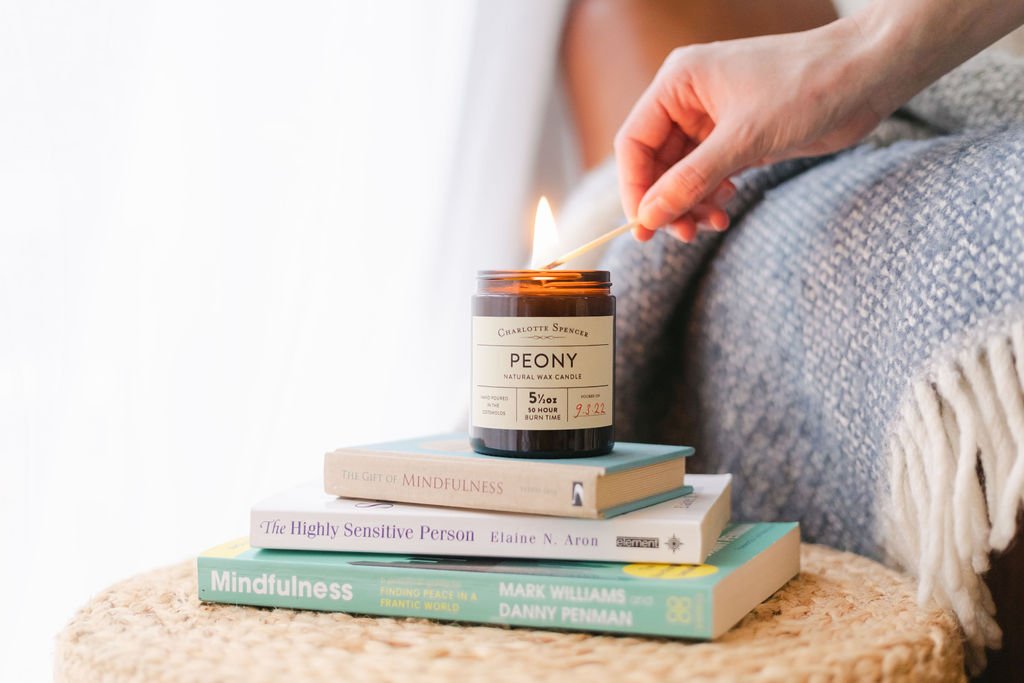4 Reasons You Worry More at Night (and Tips for Tackling Evening Anxiety)
Anxiety can affect us at any time of day, but you may notice it feels particularly intense at night. Despite feeling exhausted, you may find it difficult to quieten your busy mind and get to sleep.
There is no single reason for why anxiety can be worse at night - it can be due to several factors. In this blog post I outline some of the most common factors and some tips for if you struggle with them.
Table of Contents
1. Lack of Distractions
During the daytime we are often busy with work, day-to-day obligations and other activities. You may find that you are more easily distracted from your worries and can focus your mind on other things.
But when it comes to the evening and going to sleep, you no longer have these distractions. You are left with just your thoughts – and they can feel pretty loud and intense sometimes! It may feel like as soon your head hits the pillow the worries and stresses of the day come flooding into your mind, making it difficult to fall asleep.
Try this:
Address worries during the day. By tackling worries during the daytime, they are less likely affect your sleep. I talk about this in more detail in my free mini guide.
2. Accumulation of Daily Stressors
Throughout the day you experience multiple micro-stressors. Examples of these could be getting stuck in traffic, dealing with emails, comparing yourself to people on Instagram or having a headache. These can build up over the course of the day leaving you feeling increasingly anxious by the evening.
Try this:
Build moments of relaxation into your day. For example, you could set reminders on your phone that nudge you to do a 2-minute calming breathing exercise.
Further reading: 5 Barriers to Effective Rest and How to Overcome Them
Have a relaxing bedtime routine. Make sure you allow yourself time to switch off from the day and get into a sleep-ready state. You might find practices such as breathwork, journalling or meditation help calm your mind.
If you go to bed and find your mind is still anxious and busy, get up and do something calming until you feel sleepy again. This is better than lying in bed with racing thoughts, unable to sleep and getting frustrated with yourself.
3. Tiredness
Feeling tired can increase anxiety as it reduces your ability to regulate your emotions.
Your executive brain, responsible for functions such as focus, willpower and rationalising emotions, becomes fatigued.
Additionally, your amygdala, responsible for triggering emotions and keeping us safe, becomes more sensitive.
This means it can be harder to rationalise anxious thoughts when you are tired.
Try this:
Be aware of the impact tiredness has on your ability to regulate your emotions. It may be more helpful to come back to worries and problems when you’ve had some sleep, rather than trying to tackle them when you are tired.
4. Anticipatory Anxiety
You may find that you are anxious about what is coming up tomorrow, rather than today’s stresses, and this is keeping you awake at night.
Try this:
If this is a one-off, for example nerves about a presentation, normalise the situation. It’s ok to feel nervous. Try to do the things that help you relax and know that even if you don’t sleep quite as well as normal, you will be able to cope the next day.
If you are regularly experiencing anticipatory anxiety, it might be worth seeking support to address the root of the anxiety.
You might find it helpful to plan your days in advance. Prep things like your lunch and outfit the day before so you know it is sorted and you don’t have to do it in the morning.
Practise grounding and mindfulness techniques. It can be helpful to practise these regularly during times when you feel ok, so that you are able to draw on these skills when you need them.
I hope this post has been a useful introduction to tackling evening anxiety. Follow @therapywithamy_ on Instagram for more insights and tips on sleep & anxiety.
Disclaimer: Please note that these blog posts are for educational purposes only and are not a substitute for therapy. If you feel you need more help I encourage you to seek professional support or contact your GP.




